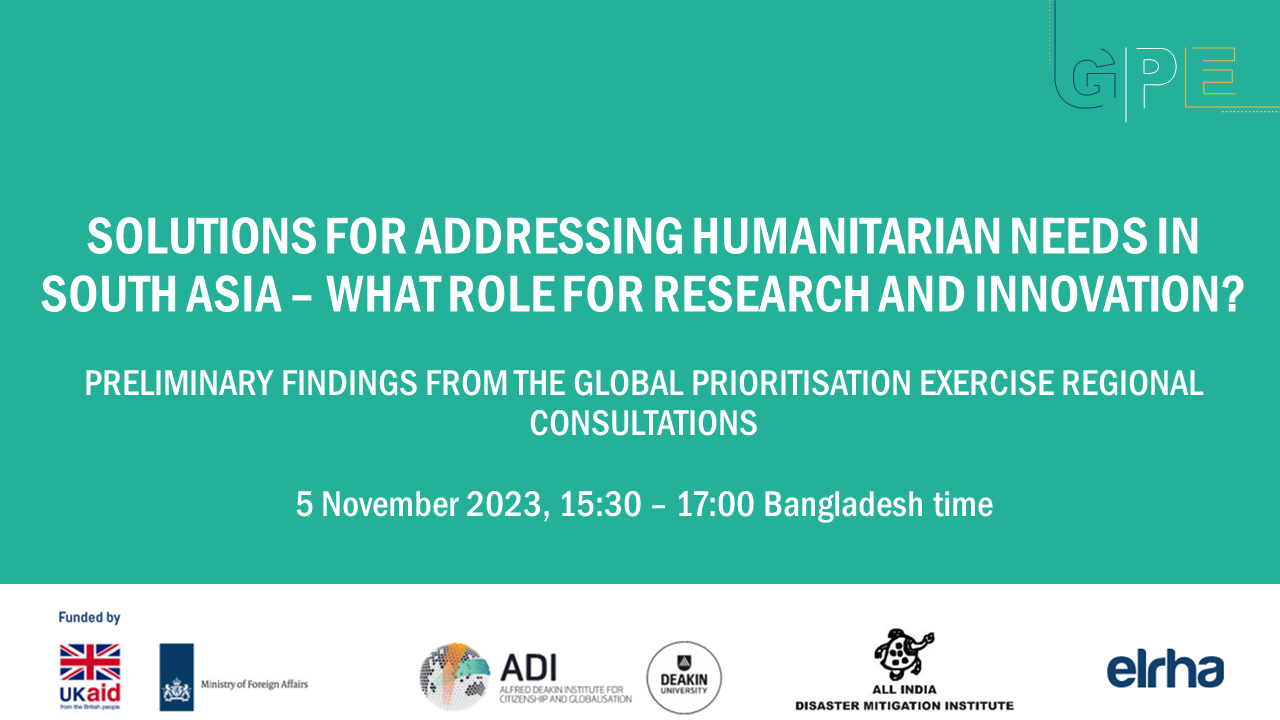
Research can help forecast and characterise humanitarian crises, understand the scale, distribution and types of needs arising, inform humanitarian action and monitor progress. Research has a crucial role to play in helping improve the ways in which the humanitarian sector mitigates and responds to crises and serves populations in need. Innovation can play a critical role in humanitarian crises by providing new and more effective solutions to the complex problems that arise during such emergencies. Strategic investments in research and innovation and appropriate utilisation and uptake of research and innovation findings can help improve the way the humanitarian sector uses evidence and identifies and scales solutions and, in turn, contribute to improving the efficiency of the humanitarian response.
As part of the global research for the GPE programme, a research team investigated the current landscape and needs for humanitarian R&I in South Asia. In this roundtable, we propose to bring together experts representing a range of perspectives, including operational and academic., to explore the findings from this research and to consider how R&I can play a greater role in driving improvements in humanitarian response and delivering impact for people affected by humanitarian crises.
To answer this question, the panellists will consider the dimensions and characteristics of humanitarian needs in the region and look at the R&I practice and needs of a range of responding actors, including UN agencies, NGOs, local agencies, and local authorities and academics.
The roundtable will be predetermined and include members from Elrha, who will chair the roundtable and provide a global overview of the GPE and will be followed by Deakin University, who will show the regional landscape. Dhaka University and All India Disaster Mitigation Institute (AIDMI) will share the process and findings of the South Asia work.
Key questions:
How can humanitarian research and innovation be better conducted and better used in times of crisis across the region?
As a large international organization operating in the region, how do we ensure humanitarian research and innovation equitable and meaningful engagement of local, national, and regional actors?
How can we ensure donor priorities align better with local, national, and regional priority issues for humanitarian research and innovation?
The roundtable will have an open discussion of the issues raised with the participating audience.
The roundtable has far-reaching implications for humanitarian studies and practitioners in directly addressing humanitarian action needs.
Organisers:
Mihir R. Bhatt, AIDMI; Colette Fearon, Elrha; Shahram Akbarzadeh, Deakin University
Speakers: